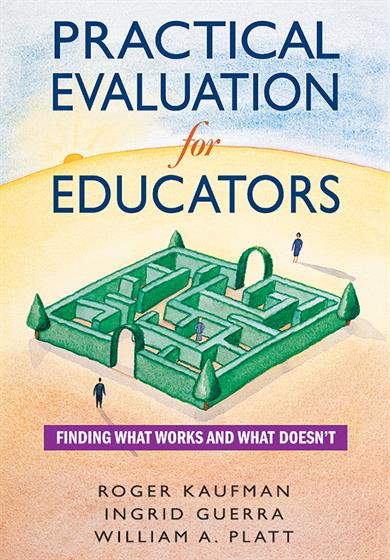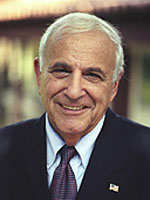"Roger Kaufman and his colleagues have produced what is simply the best practical book on educational evaluation published in the past few years. It is current, clearly written, and structured in a way that educators can apply it in a huge variety of educational contexts."
-Richard Clark, Professor
University of Southern California
"As an evaluation book written for educators and education, this publication delivers on its promise. It provides a practical, professional, and comprehensive approach for planning and conducting evaluation studies that are meaningful and effective for understanding and improving the education enterprise."
-Dale W. Lick, Professor
College of Education, Florida State University, Tallahassee
"The book describes how to ask and answer the right questions in order to measure the gaps in results and their consequences...Readers will be able to custom tailor an evaluation plan for their specific situations. Practical examples and scenarios along with how-to-do-it guides show readers how to apply the concepts and tools presented." -James D. Russell, EdD, Professor, Visiting Research Associate
Educational Psychology and Learning Systems Institute
Florida State University, Tallahassee
"This book puts evaluation in a framework of societal needs, while simultaneously being results-oriented and practical. This is a unique combination of 'how to' with 'why' that is of immense importance in the present time when the public value of education seems to have been lost ...(while) citizens also demand specifics." -Elizabeth D. Capaldi, Vice Chancellor & Chief of Staff
State University of New York
Use program evaluations to define measurable results and deliver meaningful outcomes! Finding a straightforward approach to educational evaluations is the most important step toward discovering and reporting the meaningful results underlying the hard work of education.Kaufman, Guerra and Plattpresent program evaluation as a trouble-free process that any educator can effectively complete while providing the evidence required to justify and validate any educational endeavor.
Drawing from the education, business, and military fields,this accessible resourceshows educators, administrators, politicians, learners, and parents how to distill evaluations to uncover what works and what doesn't.
Practical Evaluation for Educators breaks down the program evaluation process into four easy-to-understand steps:
- Align and direct evaluation questions into useful queries aimed at the intended results of educational programs
- Observe to gather pertinent, valid, and useful data
- Compare the results of what was accomplished to what was planned to be accomplished
- Use the data by taking action and adjusting programs to bring them into alignment with societal needs
When educators see evaluation as a simple, useful tool for improving programs, measurable results become meaningful.





